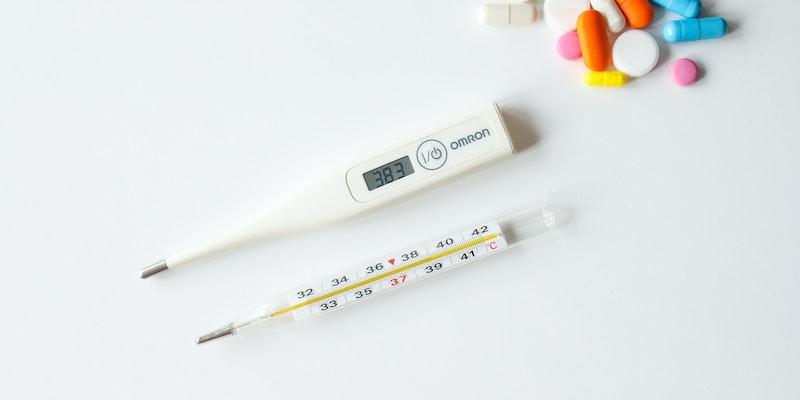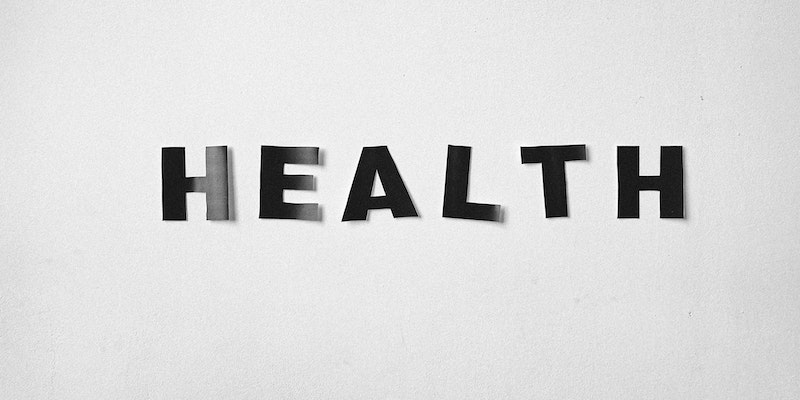The National Institutes of Health notes that the common cold affects people in the United States with an astonishing frequency, resulting in about 1 billion instances annually. These colds range from mild annoyances to more debilitating conditions resulting in missed days at work or school. Given the prevalence of this health issue, it's crucial to understand how it interacts with our exercise routines.
In What Conditions Can You Workout While Sick
Mild Symptoms
Feeling sick doesn't mean you should skip your workout. If your cold symptoms are mild, a light workout may be okay. You should trust your instincts. If you can exercise without feeling exhausted, do it. Nevertheless, hydration is important during these times. Monitor your body's reaction throughout the workout when sick; if you feel overwhelmed, it's alright to cut it short.
Stuffy Nose
We've all been there - trying to catch a breath through a blocked nose, feeling the frustration of not getting enough air. It's no fun. Workouts can become more challenging when dealing with a stuffy nose. The resistance in your airways can make aerobic exercises seem much more complicated than they typically are.
However, this doesn't mean you should abandon your workout plans. Instead, focus on tuning into your body's needs. If breathing feels too tricky, consider reducing the pace of your exercise. Try walking instead of running.
Sore Throat
A scratchy throat is never fun, especially when deciding to exercise. Imagine starting your morning routine with a persistent throat itch that makes you question your choice. Sore throats are annoying, but they rarely prevent physical activity.
Staying hydrated is crucial. Cool liquids before, during, and after exercise soothe the throat and reduce irritation. Working out with a sore throat is usually a good idea. Just moderate the intensity and listen to your body. A day off may be needed if pain or swallowing worsens.
In What Conditions You Should NOT Workout

Fever
Physical activity while feverish is uncomfortable and dangerous. Colds rarely cause fevers, according to the CDC. Burning up is your body's signal to rest. Exercising can exacerbate the fever and prolong your recovery time. Therefore, if your body temperature is elevated, hold off on any plans to workout when sick. Prioritize rest and recuperation, and save that energy for your recovery.
Wet Cough
Experiencing a persistent wet cough means your body is trying to clear out mucus. Forcing yourself to workout while sick in such a condition can lead to additional strain on your respiratory system. Instead of stressing your body further, it's wise to hold off on exercise until you're feeling better. Should you workout when sick with such symptoms? The clear answer is no. Give your body the time it needs to heal and recover.
Stomach Issues
When you have symptoms related to the stomach or any discomfort below the neck, like chest congestion, it's another sign that exercise might not be the best choice. Experiencing these symptoms and deciding to workout when sick can lead to more complications.
For those wondering, "Should you workout when sick with these ailments?" – listen to your body. It's advising you to slow down. Instead of risking worsening your condition, taking a break from your fitness routine is best to give your body a chance to heal.
How Long To Wait Before Working Out Again
When recovering from an illness, it's essential to approach returning to your exercise routine with caution. Many professionals recommend waiting until you're fully healed before returning to workouts.
There are reasons for this caution. Exercising while unwell can potentially result in the following:
- Issues with coordination.
- Potential heart-related issues.
- Decreased endurance and muscle strength.
- Rhabdomyolysis, a concerning condition where muscle content is released into the bloodstream.
- Risk of transmitting illnesses to others.
- Exacerbating your current illness.
Illness can temporarily reduce your physical capabilities. As such, when you resume your exercises, it's wise to start slow and ramp up the intensity over time. This strategy helps prevent any unnecessary complications or injuries. If you experience new or concerning symptoms during a workout, such as a persistent cough, extreme fatigue, or breathing difficulties, it's crucial to consult with a healthcare professional.
General Tips for Working Out While Sick
When dealing with minor sickness, some workouts can still be beneficial, mainly if your symptoms are confined to your head (like a stuffy nose or mild headache). However, it's crucial to exercise caution and adapt your routine accordingly.
Here are some pointers for those thinking of breaking a sweat while unwell:
- Stay Out of Communal Spaces: Given that viruses like the common cold or flu are transmitted through droplets and direct contact, it's best to avoid the gym or group activities where you might be contagious. Physical sports that involve close contact could be a conduit for spreading illnesses.
- Skip Exercise with a Fever: It's crucial to skip your workout if you're feverish. Exercising in such a state might lead to dehydration and exacerbate symptoms like headaches and muscle soreness.
- Pay Attention To Your Well-being: If your symptoms intensify during physical activity, it's a clear signal to stop and prioritize recuperation.
- Moderate Your Exercise Intensity: When you're sick, your body is already expending energy to heal. So, consider dialing down your workout's rigor. If you're a regular jogger, for instance, opt for a brisk 30-minute walk instead. Lowering the intensity doesn't mean you're compromising on the benefits of exercise.
- Prioritize Hydration: Being active, especially when coupled with illness, can escalate the risk of dehydration. Ensure you drink ample water to counteract the fluid loss from sweating and sickness symptoms.
Should You Run Or Workout With Allergies?

If you're an avid runner, allergies shouldn't necessarily halt your routine. But, depending on how severe your allergies are, you might need to adapt:
- Monitor Pollen Levels: Prefer running outdoors when pollen counts are minimal, often during early mornings.
- Choose Ideal Weather Conditions: Running post-rain is optimal, as rainfall can diminish airborne pollen. Avoid runs during dry, windy spells.
- Gear Up: Don a hat and shades to shield your hair and eyes from pollen.
- Medicate as Needed: Consult your doctor about allergy medications. If they induce sleepiness, it's best to take them before bed.
- Keep Inhalers Close: If you're diagnosed with allergic asthma, carrying a rescue inhaler during runs can be crucial.
Discuss concerns about running amidst allergies with your healthcare provider or an allergy specialist.

Discover the Top 12 Health Benefits of Incorporating Corn into Your Diet
Nov 08, 2023

Optimal Leg Workout Routines for Strength and Muscle Tone
Nov 09, 2023

The Role of a Psychiatrist: Real People Who Heal Minds
Oct 07, 2023

Health benefits of walnuts
Nov 06, 2023

Exercising with a Cold: Yay or Nay?
Nov 04, 2023

Salicylic Acid vs. Benzoyl Peroxide: Understanding the Contrast
Oct 30, 2023

Uncovering the Health Wonders of Watermelon
Nov 07, 2023

What is a Posterior Pelvic Tilt
Jul 31, 2023



